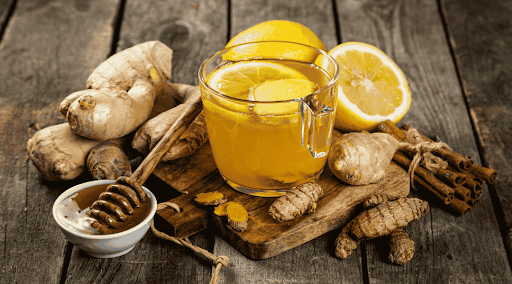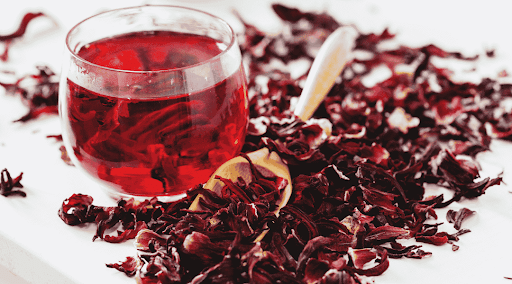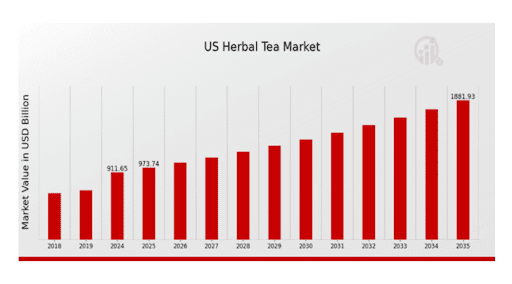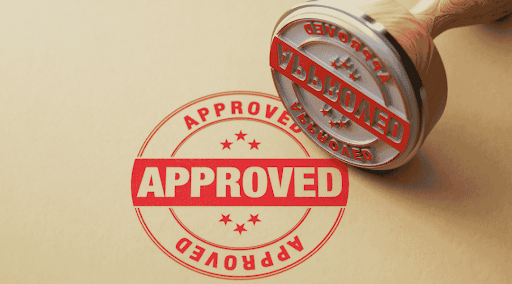
Herbal Tea – Breakthrough Opportunity for Vietnamese Businesses in the US
Herbal tea is not only a natural beverage but also a symbol of the healthy living trend. With the advantage of abundant raw materials, Vietnamese businesses have the opportunity to break through and make their mark in the promising U.S. market.
1. What is herbal tea?
Herbal tea is a natural drink made from various parts of plants, such as flowers, leaves, roots, bark, or seeds. Unlike traditional tea from the tea plant (Camellia sinensis), herbal tea contains no caffeine, offering a gentle, safe experience suitable for everyone.
Each type of herbal tea has its own flavor, ranging from refreshing, mildly sweet to warm and bold, easily appealing to diverse palates. Consumers can enjoy it anytime during the day without worrying about insomnia, making it a healthy alternative to caffeinated drinks.
Not only attractive in taste, herbal tea also brings many health benefits. Chamomile tea helps calm the nerves, ginger tea supports digestion, while artichoke tea is good for the liver.
Nowadays, herbal tea is not just a refreshing drink but also a symbol of a healthy lifestyle. As global consumer trends shift strongly toward natural and organic products, herbal tea is further affirming its position, opening many opportunities for businesses.
2. Popular herbal teas in today’s market
With outstanding flavors and benefits, the following four types of herbal teas are among the most popular today.
2.1. Ginger tea
Ginger tea is one of the most widely consumed herbal teas. Ginger contains active compounds such as gingerol and shogaol, which have anti-inflammatory effects, support digestion, and help reduce nausea.
Many people choose ginger tea when they catch a cold or after fatty meals to reduce indigestion. Additionally, ginger tea is considered beneficial for the immune system due to its antibacterial and anti-inflammatory properties.

2.2. Chamomile tea
Chamomile tea is a gentle herbal tea, well known for its ability to relax, improve sleep, and reduce stress. Chamomile contains flavonoids and compounds like apigenin that help soothe the mind.
Moreover, chamomile tea is also used to aid digestion, relieve cramps, and ease symptoms of minor intestinal disorders. For consumers in the U.S. and Western markets, chamomile tea is commonly sold in tea bags, ready-to-drink teas, or organic packaged forms.
2.3. Hibiscus tea
Hibiscus tea (from Hibiscus sabdariffa) is a herbal tea with a beautiful red color and slightly sour taste, highly popular in tropical and subtropical regions.
Research shows that hibiscus tea may help lower blood pressure, improve cholesterol levels, and support cardiovascular health. Furthermore, the hibiscus extract market is growing strongly, especially in North America and Europe, reflecting great consumer interest in this herbal tea.

2.4. Peppermint tea
Peppermint tea is another popular herbal tea, loved for its mild aroma, cool taste, and digestive benefits. Peppermint leaves contain menthol and other compounds that may help reduce bloating, indigestion, or relieve mild stomach pain.
Peppermint tea is also used to reduce headaches, bad breath, or clear nasal congestion during colds. Since it contains no caffeine, consumers can drink it anytime during the day, even in the evening.
3. Overview of the U.S. herbal tea market and Vietnam’s position
In recent years, herbal tea has increasingly affirmed its important role in the U.S. market. This is also a potential segment that helps Vietnamese businesses expand market share and build their brands in one of the most demanding markets in the world.
3.1. Market size and growth potential of herbal tea in the U.S.
The United States was the world’s largest tea importer in 2023, with stable per capita consumption of 0.41–0.44 kg/year. In 2024, tea continued to grow by 10% and ranked among the top 5 leading food categories on Amazon, opening significant potential for Vietnamese businesses.
Among these, herbal tea plays a prominent role due to its health care benefits. In 2023, the U.S. herbal tea market reached USD 850.98 million, and on Amazon alone grew by 19.3%. This confirms the huge potential of this segment, particularly on e-commerce platforms.
 Source: Market Research Future
Source: Market Research Future
3.2. U.S. consumer trends for herbal tea
The herbal tea market is being shaped by several key consumer trends, reflecting changes in American lifestyles and priorities.
Health is the top priority: Surveys show that 55% of Americans choose plant-based diets to improve their health. They prefer herbal tea for its natural, caffeine-free qualities and various benefits such as stress relief and digestive support.
Online shopping boom: Millennials and Gen Z lead the trend in buying food online. E-commerce accounts for more than 25% of tea bag sales, highlighting the importance of this distribution channel for herbal tea.
Social media shaping shopping behavior: More than half of American consumers search for and trust online nutrition content. Brands that leverage storytelling about origin, clean production processes, and health benefits can build strong trust.
Convenient and premium packaging: U.S. consumers increasingly value product experience. Pyramid-shaped tea bags have recorded strong growth on Amazon thanks to their aesthetic appeal and convenience, while eco-friendly packaging has become a key factor in purchasing decisions.
See more: Tea bags & Convenience in modern lifestyles
3.3. Vietnam’s herbal tea export situation to the U.S. market
Vietnam is among the top tea-exporting countries. In 2024, exports to the U.S. reached 6,800 tons, equivalent to USD 9.8 million, up 46% in volume and 32% in value compared to 2023.
Although still small compared to the U.S.’s total tea imports of over USD 550 million, this growth rate shows positive signals. Notably, on Amazon, Vietnamese herbal tea recorded 202% growth, proving the increasing appeal of Vietnamese products.
4. Challenges for Vietnamese businesses in exporting herbal tea to the U.S.
4.1. Strict legal regulations and certification requirements
The U.S. applies strict food control systems managed by the FDA. Imported herbal tea must meet standards for pesticide residues, microorganisms, and safe production processes (GMP). If violated, shipments may be detained, returned, or destroyed.
In addition, labeling and packaging must clearly state ingredients, origin, expiration date, and storage instructions. U.S. consumers also value sustainability certifications such as USDA Organic or Non-GMO. Without these, Vietnamese herbal tea will struggle to compete with products from India, China, or Sri Lanka.
Read more: USDA Organic Certification? What you need to know about this certification

4.2. Difficulties accessing domestic distribution systems
The U.S. market has diverse distribution channels, from supermarkets and organic food stores to e-commerce. Each channel demands high standards for volume, quality, and brand reputation.
Vietnamese businesses are often small in scale, making it difficult to meet large orders and maintain stable supply. Moreover, geographical distance increases logistics costs and lengthens shipping times. For teas sensitive to temperature and humidity, quality and flavor may deteriorate, affecting product reputation.
4.3. High marketing and branding costs in the U.S.
To succeed in the U.S., businesses need more than good products—they must also invest in branding. Attractive packaging, a clear brand story, and professional promotional campaigns are key factors.
However, marketing costs in the U.S. are very high. From digital advertising and trade shows to collaborations with influencers, all require large budgets. Without consistent investment, Vietnamese herbal tea can easily be overlooked among the countless options available to consumers.
5. Solutions for Vietnamese businesses to break through in the U.S. herbal tea market
5.1. Ensure organic certification and international standards
The prerequisite for Vietnamese herbal tea to enter the U.S. is obtaining international certifications such as USDA Organic, Non-GMO, HACCP, or ISO. These serve as “passports” that help products overcome FDA technical barriers and build consumer trust.
Businesses need to invest from cultivation and harvesting to processing according to organic standards. This not only facilitates export opportunities but also enhances credibility, giving products a competitive edge against major brands.
5.2. Build a brand tied to natural and sustainable values
American consumers increasingly prioritize products linked to green and sustainable values. Therefore, instead of focusing only on benefits, Vietnamese businesses should tell brand stories connected to clean raw material regions, safe farming practices, and environmental commitments.
A herbal tea brand that ensures quality while conveying messages of healthy and green living will easily create consumer goodwill. This is also a way to make Vietnamese products stand out and resonate emotionally with American consumers.

5.3. Leverage cross-border e-commerce distribution
Cross-border e-commerce is opening great opportunities for Vietnamese herbal tea in the U.S. Instead of relying on importers, businesses can directly list products on platforms such as Amazon, eBay, or Walmart Marketplace.
This channel allows direct consumer access, reduces intermediaries, and quickly tests new products. At the same time, businesses can promptly gather real consumer feedback to improve quality, packaging, and marketing strategies.
5.4. Invest in packaging and design suited to U.S. consumer preferences
Packaging is the first factor influencing purchase decisions. U.S. consumers often prefer simple, modern designs that clearly show ingredients, uses, and certification standards.
Vietnamese businesses should prioritize eco-friendly packaging materials to align with green living trends. At the same time, imagery tied to nature and Vietnamese identity will create distinct highlights, making products stand out on store shelves.
A well-designed package not only makes the product attractive on shelves but also reflects professionalism and credibility. Carefully invested packaging enhances product value and contributes to competitive advantages in the premium segment.
Read more: All about Amazon Global Selling and support services for businesses
6. Conclusion
The U.S. herbal tea market presents both great opportunities and significant challenges for Vietnamese businesses. Only brands that adapt, innovate products, and leverage the right distribution channels can establish their position.
Investing in quality, international certifications, and comprehensive marketing strategies will be the key for Vietnamese herbal tea to break through. This is not only a step forward in exports but also an opportunity to bring Vietnam’s natural products closer to global consumers.
AGlobal – the best cross-border e-commerce solution for businesses.
Register now for free one-on-one consultation tailored to your industry Here!
